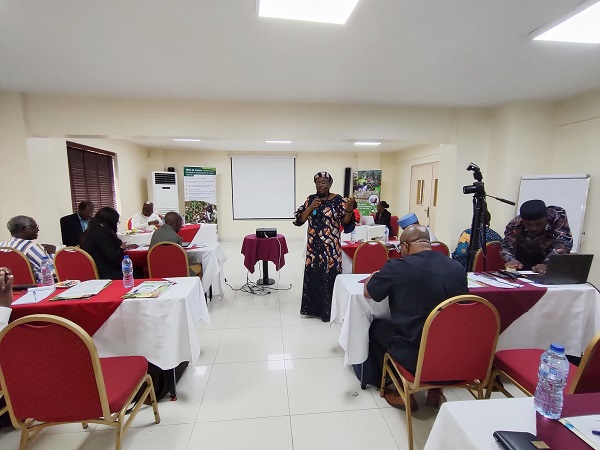
The country coordinator, Open Forum on Agricultural Biotechnology (OFAB) in Africa, Nigeria Chapter, Dr. Rose Gidado has said Nigeria has assumed a leadership role in the development of modern agricultural biotechnology in Africa.
Speaking in an exclusive chat with Science Nigeria on the sidelines of the biosafety and biotechnology stakeholders meeting held today (September 15, 2022) in Abuja as part of the study tour of a delegation from Mozambique and Ethiopia. She, however, pointed out that to whom much is given, much is expected.
“Nigeria is very important in the biotechnology space. Seeing other countries coming to us, this is not the first time. Presently, we have three countries here now; Kenya, Mozambique and Ethiopia. Ghana also visited Nigeria to learn from her experiences. So, you see that our horizon is rising. My prayer is that our light should not go dim because to whom much is given, much is also expected.
“Nigeria is now like the lead. Being the lead, we need to maintain the leadership that has now been put upon us. So our situation will not be like [that of] Burkina Faso. You know we used to visit Burkina, like other African countries, to learn from their experiences. They suddenly went into limbo and were taken aback. We should not be taken aback. We still need to be on top of the sectoral development,” she stated.
She urged the Ethiopian and Mozambique delegation to pay attention to lessons from Nigeria and apply what they learnt from the sector to develop biotechnology in their respective countries.
“They are listening to us. They should take it as we have told them and go practice what we are practising. The experiences and knowledge we are sharing with them are no lies. That is the way it is. They should follow in our footsteps and embrace what they have taken from Nigeria and they will surely succeed.”
Also, Gidado called for collaboration between the biosafety and biotechnology stakeholders to facilitate the safe adoption of the technology for socioeconomic development.
“There shouldn’t be any discord between the biosafety and biotechnology stakeholders, even though one is regulating and the other is promoting, they should work hand in hand. For the regulators to regulate – putting the biosafety framework in place does not mean that the technology should not be practised – it is there to ensure safety. Their job is not to bring down the technology but to facilitate the safe practice of the technology. Their job is to repose confidence in people, to carry out their job on safety issues/matters, they should work hand in hand because it is one government, one country.
“Biotechnology will always contribute to the country’s economy, empower the farmers to have quality grains/produce,” she advised.
Earlier in his remarks, the Pod-Borer Resistant cowpea manager, African Agricultural Technology Foundation (AATF), John Baptist, encouraged the Ethiopian and Mozambique delegation to take advantage of what they have seen and learnt in Nigeria, so they can set the adoption of modern biotechnology to create more productivity in the agriculture sector.
He restated the importance of biotechnology by Africans for Africans, even as he expressed the hope that Ethiopia and Mozambique will begin to set procedures for modern biotechnology in their respective countries.
In his goodwill message, the national president, All Farmers Association of Nigeria (AFAN), Arc. Kabir Ibrahim stressed that farmers embrace biotechnology because they believe in science which deals with facts and not fiction or sentiments.
“I encourage the Mozambican and Ethiopian delegations to embrace biotechnology. In Nigeria, we embrace biotechnology. We were there right from the beginning and I have planted PBR cowpea and Bt cotton and waiting to plant TELA maize.
“I believe this is a gateway to food security. You will first adopt this technology so that you will give the whole world food security. Africa is the place that stands to give the world what it requires today because our youthful population is gallant. We have arable land and the whole world is looking up to us for food security,” he added.
Highlighting lessons learnt from Nigeria, the leader of the Ethiopian delegation, the chairman, the National Variety Release Committee Ethiopia, Prof. Firew Mekbib pointed out that there is a cordial relationship between Nigeria’s biosafety and biotechnology stakeholders, adding that Nigeria also has a very strong biosafety agency.
In her remarks, the director-general, Agronomical Research Institute of Mozambique, Dr. Olga Fatetine expressed optimism that the country has learnt how Nigeria can counter misinformation using facts and evidence.
She added that Mozambique has embarked on field trials for TELA maize for over 15 years and is currently pushing for its commercialisation, hence the need to understudy Nigeria and the successes she has recorded.
According to her, lessons from Nigeria would help the country get to the next level which is available for farmers of virile seeds to increase productivity and enhance food security.


